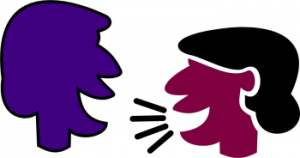Developing Language in Primary Science
How can developing these skills enhance children’s understanding of science?
About. This resource explains the relationship between language and the curriculum. It outlines links between language skills and science, offering examples of science work which could develop speaking and listening, reading, and writing skills. Advice on long-term planning for the development of language skills in science suggests:
- reviewing what you already do,(planning for greater emphasis on language,
- identifying what else happens in school and evaluating your success.
Included are example activities designed to develop children's use of language in science topics: 'moving things' 'materials'. A further document considers the topic of 'light' as a context for developing language.
Pedagogical content. The resource would be particularly useful for PGCE students thinking about incorporating cross-curricular(subject) strands, or teachers looking to do the same, either in their own practice or in new curriculum development(topic) work.
Language development and the use of appropriate vocabulary(ta) is highlighted as important across the curriculum. Incorporating this consideration into science planning(ta) is important for meeting the target of developing language. The importance of language and talk in science – including through group work(ta), and Whole class(ta) dialogue – is highlighted elsewhere (and in the resource) but includes the ability to explain concepts, understand synthesising ideas (including those from other people and texts), and the need to read and write for different purposes, (including conceptual understanding, data presentation, etc). These are key ideas in communicating the scientific method(ta) (edit)
| Resource details | |
| Title | Developing Language in Primary Science |
| Topic | [[Topics/Literacy|Literacy]], [[Topics/Curriculum development|Curriculum development]] |
| Teaching approach | [[Teaching Approaches/Whole class|Whole class]], [[Teaching Approaches/Language|Language]], [[Teaching Approaches/Group work|Group work]], [[Teaching Approaches/Planning|Planning]], [[Teaching Approaches/Scientific method|Scientific method]] |
| Learning Objectives |
|
| Subject | [[Resources/Literacy|Literacy]], [[Resources/Teacher education|Teacher education]], [[Resources/Primary|Primary]], [[Resources/Science|Science]], [[Resources/Cross-curricular|Cross-curricular]] |
| Age of students / grade | [[Resources/Primary|Primary]]
|
| Related ORBIT Wiki Resources | |
| Files and resources to view and download |
|
| Acknowledgement | This resource was adapted from resources and original ideas contributed by Paul Warwick, at the Faculty of Education, University of Cambridge. |
Property "Tagline" (as page type) with input value "How can science help to develop speaking, listening, writing and reading skills? </br>How can developing these skills enhance children’s understanding of science?" contains invalid characters or is incomplete and therefore can cause unexpected results during a query or annotation process.


 snapshot of files
snapshot of files
